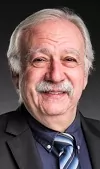In our first article, we discussed our experience acting for a pharmacist, Mr Hanna during a restriction of his registration.
After we represented Mr Hanna before NCAT in challenging the conditions imposed on his registration by the NSW Pharmacy Council, the NSW Court of Appeal provided a much clearer understanding of when a Health Council can claim to be acting in the public interest when imposing conditions using these Section 150 hearings.
This was in the case Pridgeon v Medical Council of New South Wales [2022] NSWCA 60 where a general practitioner doctor was successful in appealing the restriction on his registration.
PRIDGEON V MEDICAL COUNCIL OF NEW SOUTH WALES
Dr Pridgeon, a registered doctor, was charged by the Australian Federal Police and Queensland Police for harbouring and supporting a woman and her twin daughters, where the mother did not return the twins back to the custody of the father. The father had previously been ordered by the Family Court of Australia to be the parent with whom the children were to live with.
Dr Pridgeon explained that his reason for doing so was that the mother had informed him that the twins had been sexually abused by their father and that he had personally observed behaviour from the children that seemed to confirm this. Further, despite providing this information to the police and Family Court, no action had been taken.
The Medical Council of NSW suspended Dr Pridgeon's registration under Section 150 of the National Law claiming that emergency action needed to be taken and that he posed a risk to the health and safety of the public.
On both review and appeal of the decision, the Medical Council and NSW Tribunal both upheld the decision to suspend Dr Pridgeon's registration. This was in spite of the Tribunal accepting that Dr Pridgeon's belief that the abuse of the children would continue if the Family Court order were to be complied with.
Dr Pridgeon succeeded in his final appeal to the NSW Court of Appeal.
It was held by the Court that a Section 150 complaint should be dealt with as a particularised complaint, which the health practitioner could address at an oral hearing. If suspension was warranted, then it should be dealt with by the Tribunal and not the Medical Council.
It was also noted that the Medical Council's power to suspend a doctor's registration under Section 150 should only be reserved for urgent cases and that the term 'public interest' was to be assessed in context. Although Dr Pridgeon had been charged with offences, he was not yet guilty of the offences and thus the Tribunal's decision was led by assumptions of guilt.
Finally, the reputation of the medical profession that was said to be possibly affected by Mr Pridgeon's conduct in defying a court order, for which he had a good arguable defence, was not a concern that informed the particular public interest that Section 150 was relevant to.
This statement by the NSW Court of Appeal is particularly interesting given the examples given in the Queensland version of the National Law try to claim that these sorts of interests might be sufficient for such a condition to be imposed. Time will tell how Queensland courts will interpret this public interest.
The content of this article is intended to provide a general guide to the subject matter. Specialist advice should be sought about your specific circumstances.


